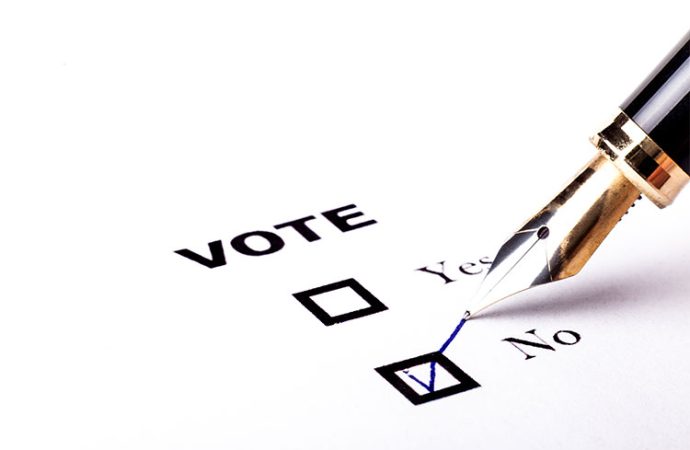Author Recent Posts Zartaj Chaudhary Latest posts by Zartaj Chaudhary (see all) Pakistan’s Energy Dilemma: Importing Oil and Gas from Central Asia and Iran – September 15, 2023 Examining the Risks of Artificial Intelligence to Human Security – September 7, 2023 Impacts of Urban Flooding on Development Projects in Pakistan – August 25, 2023
Election reforms are the catalysts initiating the process of transformation, driving Pakistan’s democracy to lose its old shell and emerge stronger, more vibrant, and truly reflective of its people’s aspirations. The keystone of democracy is an election system that enables citizens to exercise their fundamental right to vote. However, elections in third-world countries are usually plagued by the interference of undemocratic forces, corrupt administrations, rigging accusations, and multiple injustices. A defective electoral system leads to poor governance, which opens the door for non-democratic forces like the military and religious organizations to seize power. In Pakistan, where this trend is widespread, martial laws have been imposed, resulting in numerous violations of the country’s constitution. This predicament raises concerns regarding what sort of electoral reforms are necessary to save the democratic future of Pakistan.
Pakistan has a lengthy history where the threat of rigged elections has haunted its progress toward democracy. The electoral history of Pakistan represents recurring themes of pre-election, election day, and post-election rigging. Public trust has frequently been damaged by these incidents, which has resulted in social unrest and political instability. Such occurrences have sparked proposals for electoral reforms over time to overcome these problems and guarantee a responsible, transparent, and truly representative democratic process. Following the 2013 elections, the PMLN’s return prompted PTI to call for a reevaluation of the results in numerous constituencies. The PML-N rejected the PTI’s request for a vote recount in four constituencies, which sparked a 126-day sit-in protest against election fraud in Islamabad.
Keeping in view the current political instability in the country, Pakistan needs a revitalized electoral system to get back on track toward a robust democracy. Article 223(b)’s unique provision, permitting candidates to run in more than one constituency, has turned out to be ineffective and resource-draining. This practice results in wasteful by-elections for the vacated seats despite winning numerous seats but only allowing the retention of one. As a result, this waste puts a burden on the available resources, pointing to the need for the removal of this provision. For instance, Bilawal Bhutto ran for three seats, whereas Shehbaz Sharif and Prime Minister Imran Khan each ran for five seats in the National Assembly.
The disputed and contentious Senate Election 2021 further highlights the importance of introducing immediate electoral reforms. All elections must be conducted under Article 226 of the constitution, with the significant exception of the elections for Prime Minister and Chief Minister. This specific clause has created a lot of room for manipulation concerning the practice of trading and purchasing votes. To undertake necessary electoral reforms, direct election of senators, similar to the US Senate system, must be used in place of secret balloting. The only practical approach to implement this reform is through a constitutional amendment since Senate Elections under the 2017 Act are rendered inefficient by the Supreme Court’s advisory jurisdiction.
The PTI government under Imran Khan’s leadership provided a comprehensive electoral reform package highlighting the need for extending the right to vote to overseas Pakistanis and introducing Electronic Voting Machines (EVMs). Given that PTI has more support among Pakistanis living abroad, it seeks to use this popularity to build a vote base by allowing E-voting for these individuals. The ruling coalition, on the other side, seeks to deny PTI of this edge for the same reason. Though, this technological reform has its vulnerabilities the self-interest of parties has sabotaged its need knowingly the needs of the rapidly globalizing world. Pakistan can learn from France’s approach of reserving constituencies for expatriates to increase its overseas participation.
An independent organization created by the Constitution, the Election Commission of Pakistan (ECP), is in charge of overseeing the organization and conduct of free and fair elections. Despite having legal authority, there have been claims of irregularities throughout the ECP’s history. Recent initiatives, such as calling for a runoff in NA-75 (Daska), however, show hope. Future transparent elections require the ECP to have greater legal, administrative, and financial clout. Dynastic politics, which are representative of monarchies, are strengthened by a lack of democratic culture inside parties. To combat this, it is necessary to have legally binding intra-party elections, which call for the ECP’s supervisory function, which is absent under Section 208 of the Election Act, 2017. For Pakistan’s democracy to advance, the ECP must be given more power in this area.
The dynamic landscape of Pakistan’s democratic journey demands urgent comprehensive electoral reforms. Pakistan must set out on a determined road that includes enhancing the autonomy and effectiveness of the Election Commission, embracing technological advances to guarantee safe and impartial elections, and giving voter education a top priority to empower residents. Through vigorous intra-party elections and increased campaign money oversight, it is equally important to foster a culture of political ethics free from dynastic politics. Pakistan may rewrite the history of its democratic future by cultivating a culture in which the value of every citizen’s vote be that local or expat is given equal importance. With a system that is truly of the people, by the people, and for the people, the change can offer a promising democratic future for Pakistan.
- Pakistan’s Energy Dilemma: Importing Oil and Gas from Central Asia and Iran - September 15, 2023
- Examining the Risks of Artificial Intelligence to Human Security - September 7, 2023
- Impacts of Urban Flooding on Development Projects in Pakistan - August 25, 2023





















Leave a Comment
Your email address will not be published. Required fields are marked with *